Protests Against Citizenship Law Spread In India
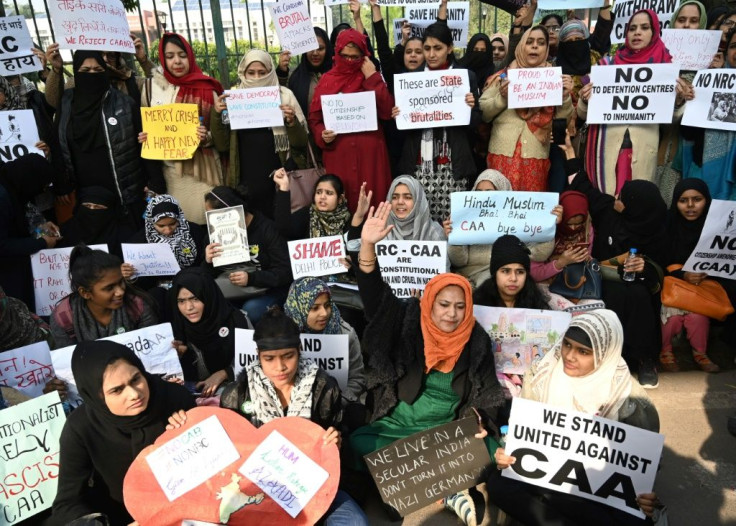
Protests against India's controversial new citizenship law were expected to attract large crowds in major cities Thursday, one day after large gatherings were banned in key regions and parts of the capital in an attempt to clamp down on the demos.
The rallies against the law over the past few days have often turned violent, with six people killed in the northeastern state of Assam, where police have fired tear gas and arrested hundreds of people.
The law allowing New Delhi to grant citizenship to non-Muslim nationals from three neighbouring countries follows other policies from the government of Prime Minister Narendra Modi that critics say are designed to marginalise Muslims in the Hindu-majority nation.
Modi says the measure is meant to protect persecuted minorities, but critics see it as part of a master plan by him and his Bharatiya Janata Party (BJP) to define India as a Hindu nation and move away from its secular foundations.
Police refused a march permit for one of two major Thursday demonstrations in Delhi, officials said. Organisers said they planned to march anyway.
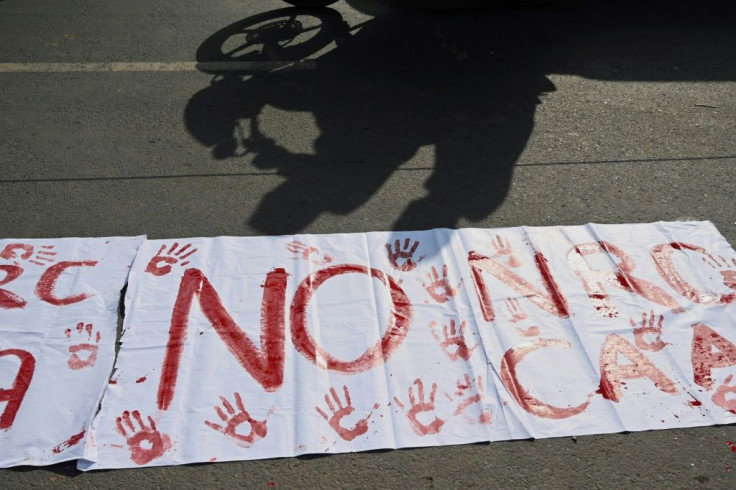
Delhi authorities on Wednesday even imposed a ban on gatherings of more than four people in some of the city's Muslim-dominated districts.
A crowd of mostly young people rallied outside Delhi's Jamia Millia Islamia university to protest the law, defying the ban on large gatherings.
"We are really very angry with the BJP government... They have taken racism to the extreme point," Taiba Hadis, 18, told AFP at the rally.
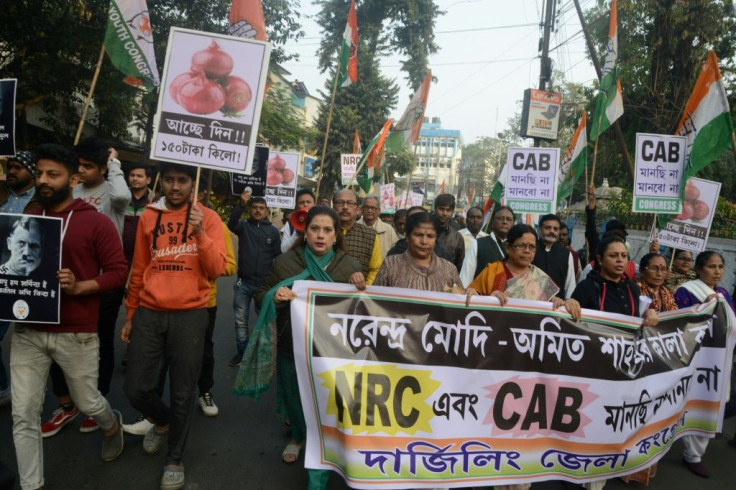
"They are questioning our existence, and it is high time for us to speak up."
In the financial capital Mumbai, hundreds of people under tight security carried placards with the words "India is Ours" and chanted "We Are All One".
"We just cannot go along with this bill. I can't believe we now have to prove our citizenship after living in India for so many years," Tabeer Rizvi told AFP as the Mumbai crowd burst into a Hindi version of the US civil rights movement anthem "We shall overcome".
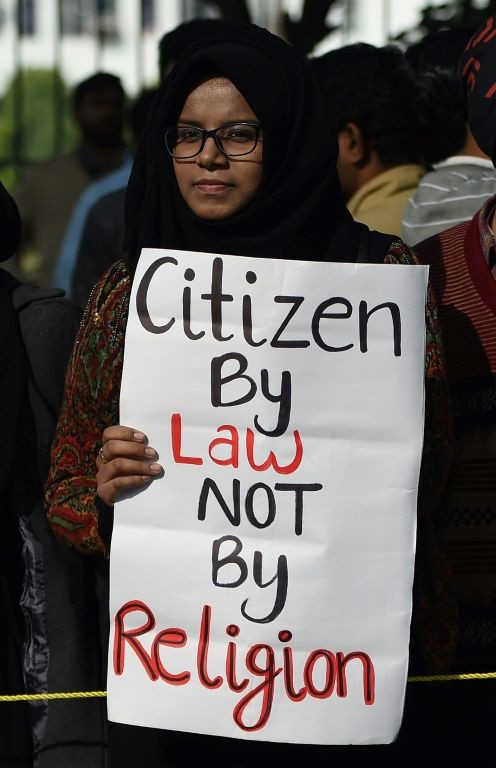
"I am not surprised to see people of all religions come out to protest this bill."
Rallies were also held in other states including West Bengal, Tamil Nadu and Telangana.
There were sporadic clashes between police and demonstrators in some cities as well as small counter-protests.
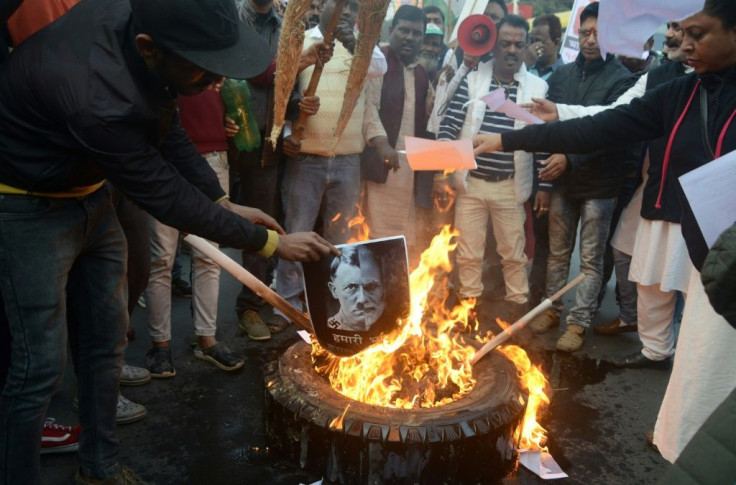
The latest round of protests came as the Supreme Court rejected pleas for an immediate stay on the legislation, but deferred the case to January for extensive hearings.
Petitioners have said the legislation is unconstitutional and counter to India's cherished secular traditions.
In Washington, the US State Department earlier urged New Delhi to "protect the rights of its religious minorities in keeping with India's constitution and democratic values."
At least 21 people, including 12 policemen, were injured in the Delhi clashes in Seelampur district on Tuesday, with police firing tear gas after thousands of protesters threw stones and set fire to buses and a police outpost.
Eight people were arrested for rioting and arson, police said Wednesday.
Another six people were arrested in West Bengal state on Tuesday for hurling a bomb at policemen, injuring seven officers.
In Uttar Pradesh, more than 110 people were arrested over the protests or for posting on social media, police told AFP.
Hostels at the state's Aligarh Muslim University, where students on Sunday alleged police brutality, were emptied after the administration told residents to start their winter vacation early.
Five people were arrested in Vadodara, in Gujarat state, for scrawling a Nazi swastika next to the lotus logo of the BJP party that was painted on the wall of the police headquarters.
Opposition parties, led by Congress President Sonia Gandhi, met with President Ram Nath Kovind on Tuesday to ask him to advise Modi's government to withdraw the law.
The UN secretary-general's spokesman Stephane Dujarric said Tuesday the global body was "concerned about the violence and alleged use of excessive force by security forces that we've seen that have been taking place".
"We very much call for restraint and urge full respect for the rights of freedom of opinion and expression and peaceful assembly," he added.
Authorities have imposed internet blackouts and used force to shut down rallies and sit-ins, but protesters have vowed to keep up their fight until the law is revoked.
© Copyright AFP 2024. All rights reserved.





















